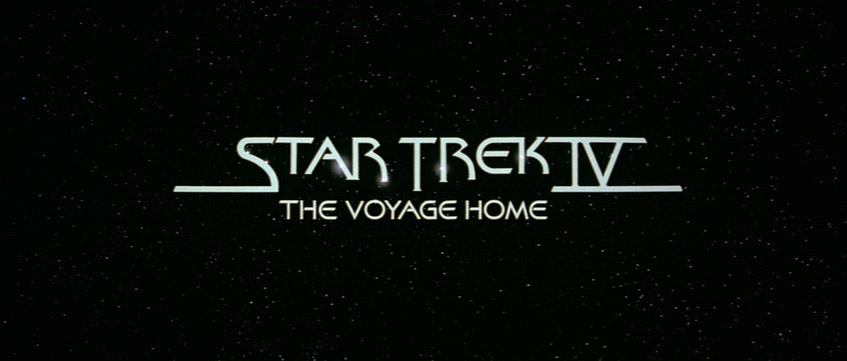
I knew it.
This is not a movie to watch as a critical adult. It's the only movie I can think of where the threat is a planet-destroying, energy-sucking alien monster and yet the stakes are this low (even the
But I'm viewing this as part of a trilogy, that's the deal here. And so, to recap:
The Wrath of Khan is the story of Admiral Kirk, a captain without a ship, unable to accept his age and position, and Spock making the ultimate (albeit logical) sacrifice to save his friends. It ends with Spock dead, Kirk bereft, and the ship limping home.
The Search For Spock is the story of Kirk, a listless man who has lost his soul, and the impossible ridiculous journey to get it back by breaking laws, disobeying orders, committing treasonous crimes and hitting control-Z on Spock's sacrifice. It ends with Kirk forced to give up what he thought was the most important thing in his world -- his ship -- for his friends and his own survival, and with Spock returned to life, a confused and newborn soul inhabiting an adult Vulcan body.
The Voyage Home is the story of Kirk, his soul restored (if the themes of III are to be taken literally and carried over) becoming again a man with a mission: save the planet from a strange alien visitor through time travel, as Spock learns how to be "human" through life lessons like cursing, lying, and valuing a friend's life more than mere logic would allow. Spock's soul matures and Kirk plays Casanova and cowboy. It ends with them returning home in a Klingon ship, saving the day (of course), and Spock insisting on standing trial alongside his friends (despite being absent and therefore innocent of all charges). Because they saved the planet they are exonerated of all charges except one, and Kirk alone stands to be punished. His punishment is a nice moment of reversal, in that it results in a demotion and the return of Kirk to the captain's chair -- of a brand new Enterprise no less (which, by my count, was commissioned and built in under three months! I don't know, is that fast or is it just me?).
As a trilogy, I think it works. The story goes: Kirk has taken a desk job and is miserable. He feels he is losing his ship (the Enterprise), his sense of purpose (a mission), and his best friend (Spock). He is lost -- half a man at best. As the trilogy proceeds, he literally loses all three of these things: his best friend (Spock dies), his sense of purpose (they won't let him go back to Genesis; they won't give him a ship to command), and his ship (the Enterprise is destroyed to beat the Klingons). He fights to bring back his best friend -- arguably the least likely of the three to recover -- and then, through other, mostly unrelated Herculean tasks (though honestly, like I said, the losses in III and the heroics in IV both play out way too easily for my tastes) he is rewarded with the recovery of his other two losses: a new ship, a continued mission/sense of purpose. The trilogy ends triumphant. And all is well in the universe.
(That is until Spock's crazy brother brainwashes the crew and steals the ship and takes them to meet God, who it turns out is an impostor alien who wants a starship and has lightning bolts for eyes. But I think everyone everywhere, fans and non-fans alike, have agreed to pretend Star Trek V simply doesn't exist. So let us never speak of that again.)

No comments:
Post a Comment